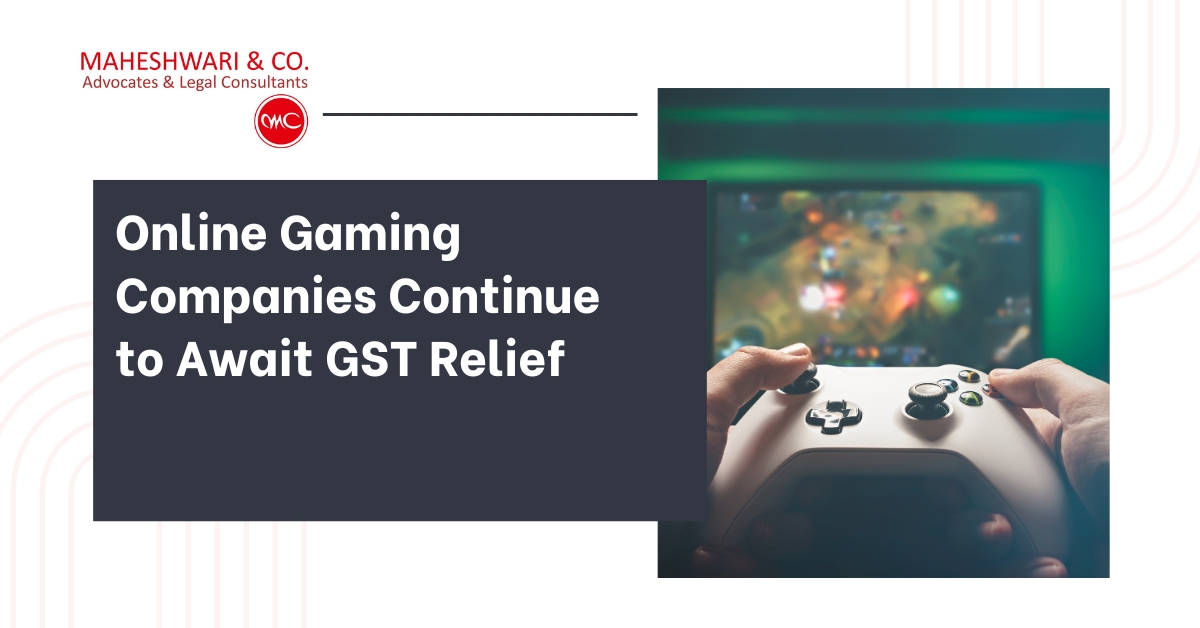Online gaming companies seeking GST relief from a massive 21.12 lakh crores in retrospective taxes will have to wait longer. These companies, particularly those involving real money games, have been navigating a challenging environment since last year. Authorities issued 71 notices for evasion of goods and services tax (GST) for periods before October 1, when a 28% GST rate was officially applied to the full value of deposits made by players. Prior to this, the law did not specify tax rates on online gaming, leading companies to pay taxes on platform fees or commissions, usually between 5-20% of deposits..[1]
Retrospective Tax Challenges
There was concern that the government may consider providing relief to the money gaming industry concerning retrospective tax claims. However, uncertainty remains regarding GST notices for past payments, which many companies find troubling. Numerous firms have filed petitions on this matter, and these will be reviewed by the Supreme Court.
Additionally, companies have expressed concerns about their ability to pay GST on previous years’ transactions, as the funds were already disbursed to players. This matter is expected to be revisited by the GST Council after the General Elections and the formation of the new Union government.
Current Tax Burden and Industry Response
The 28% GST on online gaming, casinos, and horse racing was introduced on October 1, 2023, with the Council promising a review after six months. The industry has voiced concerns that the high tax rate could deter players due to the substantial tax burden. Industry experts and leaders are advocating for a reconsideration of the high tax rate to encourage further growth in the sector. The member of the Skill Online Games Institute (SOGI), proposed measures such as implementing temporary restrictions for players who spend excessive time or money on online gaming in a single day. The member emphasized the role of the online gaming industry as an economic driver, stating that India will need at least two or three strong growth sectors to become one of the top economies in terms of per capita income. The online gaming industry, due to its large size and the IT skills of many Indians, can play a key role in boosting India’s economic growth.
Future Prospects
The GST Council’s upcoming meeting is set to focus on budget consultations with state finance ministers. Despite the industry’s confidence that their urgent plea will be addressed, insiders suggest that the council will not consider the retrospective tax issue in the upcoming meeting. These officials, who prefer to remain anonymous, indicated that the meeting would instead discuss amendments to GST laws for inclusion in the upcoming Finance Bill and measures to enhance ease of doing business.
The co-founder of the well-known gaming platform remains hopeful, expressing confidence that their urgent request will be acknowledged and acted upon. However, the council’s agenda does not indicate major changes to tax rates, instead emphasizing ongoing reforms and business support. The co-founder of the well-known gaming platform remains hopeful, expressing confidence that their urgent request will be acknowledged and acted upon. However, the council’s agenda does not indicate major changes to tax rates, instead emphasizing ongoing reforms and business support. A business expert emphasized that businesses anticipate the next phase of GST reforms to include a reduction in rate slabs and the inclusion of petroleum products.
The online gaming industry faces a complex landscape with the current 28% GST rate and looming retrospective tax challenges. The upcoming GST Council meeting is likely to focus on broader reforms rather than immediate industry-specific tax issues. The sector’s leaders remain hopeful that a more favorable tax regime will eventually be established, supporting the industry’s growth and its significant economic contribution.
Author: Mr. Ketan Joshi, Senior Associate
Co-Author: Ms. Aditi Arora, Associate






